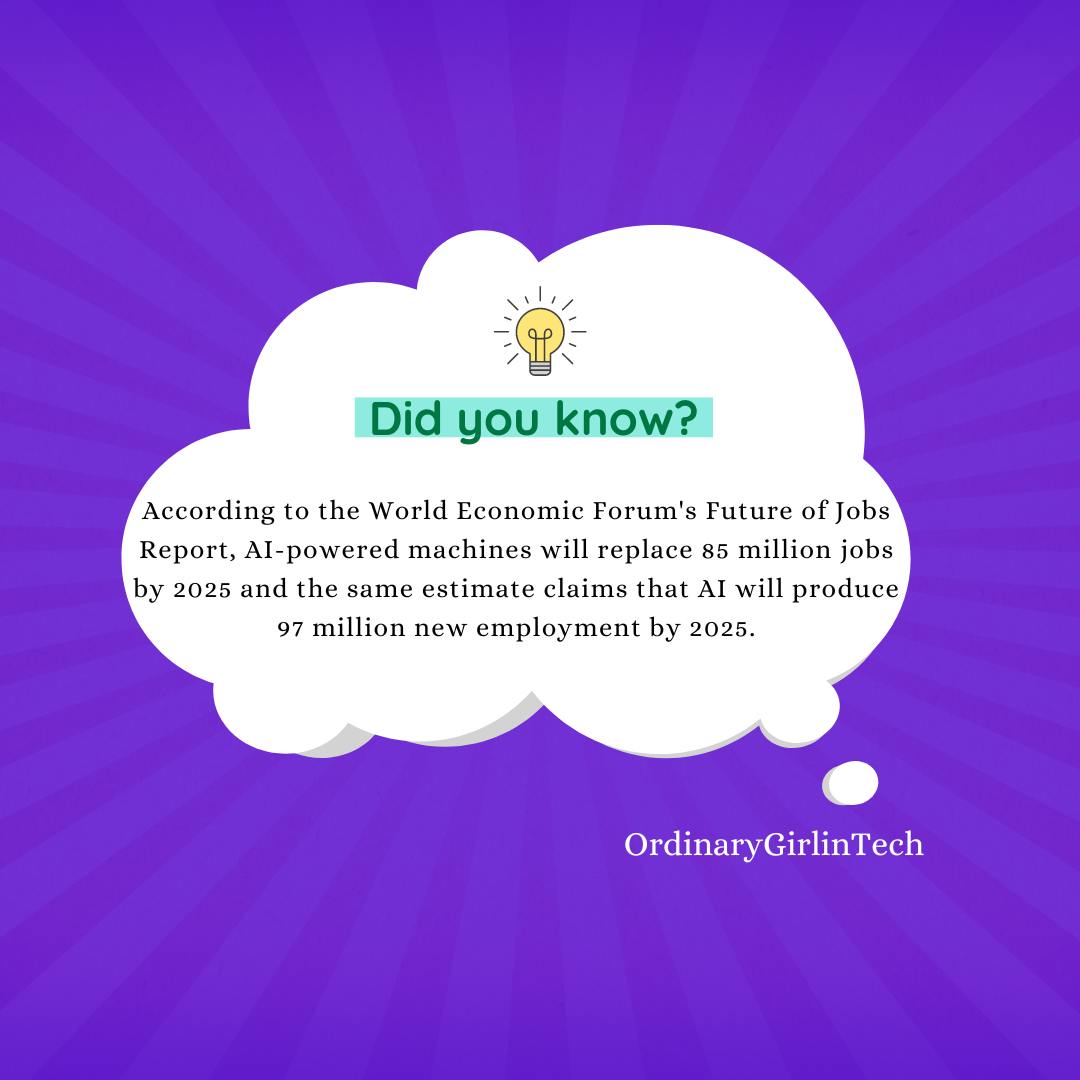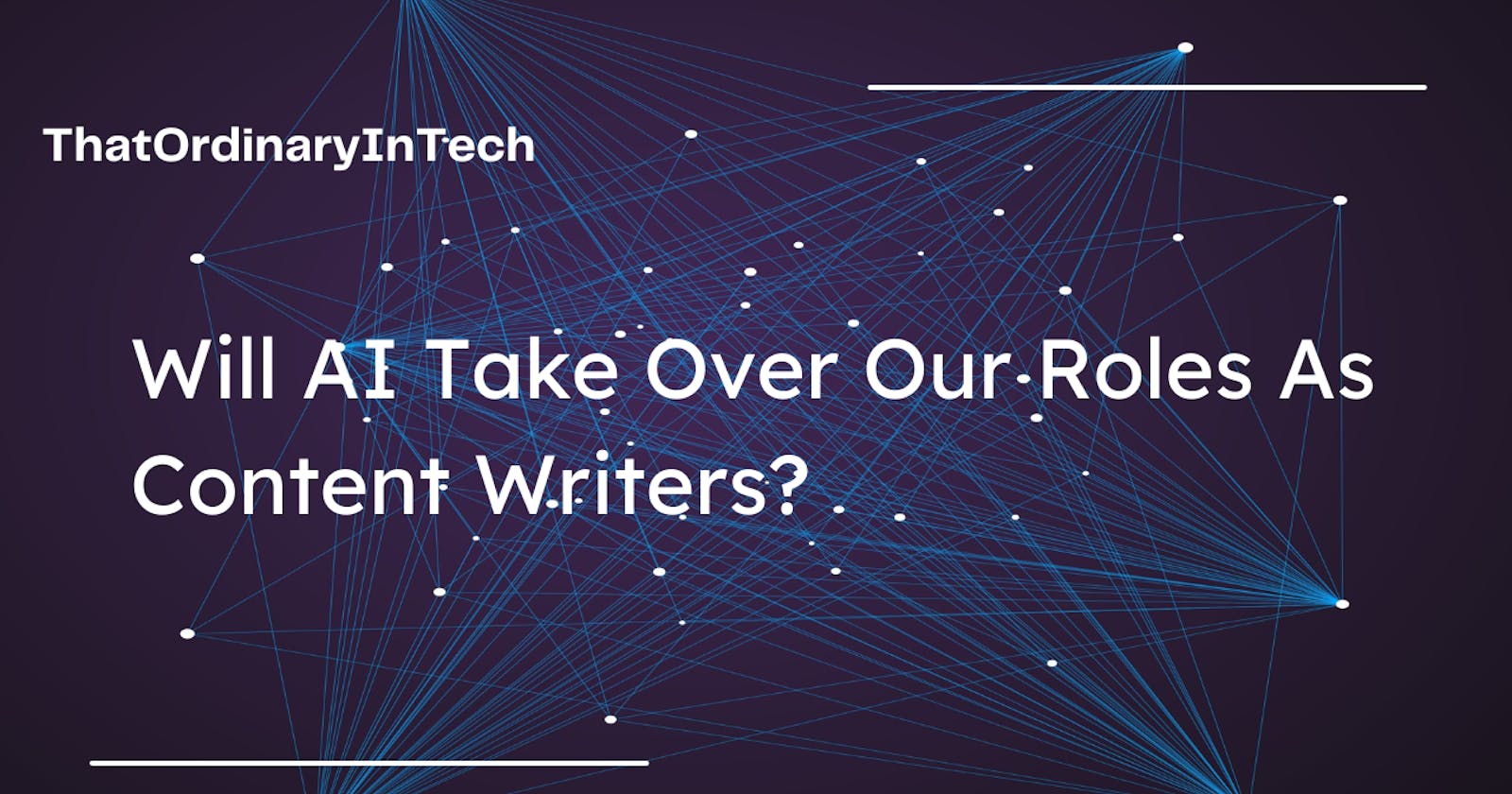The future is here. It's a time of great change, and we are all a part of it. As we move forward into the world of artificial intelligence (AI), we can't help but wonder: will AI take over our roles as content writers?
And the answer is… maybe—but not for a while yet.

Humans are a lot smarter than we give them credit for. We’ve done some pretty incredible things, especially when it comes to writing. We can write novels, song lyrics, and screenplays—all while crafting stories that captivate our audience and make them want more.
If you're a writer, the idea of artificial intelligence taking over your job might seem like a scary proposition. But don't worry! If AI ever does become as smart as we think it will, there's a good chance that it won't be able to write as well as you can.
So what exactly is Artificial Intelligence?
Artificial intelligence is just a fancy way of saying "computer programs that can do things we think require human intelligence." That includes things like recognizing faces and voices, understanding language, and even making decisions based on data (like deciding which movie to recommend to you).
What is an AI content writer, exactly?
Simply put, it’s a computer program that uses machine learning to generate text for you by analyzing data about your business and its audience. For example, if you were an e-commerce store selling high-end clothing to young professionals in Nigeria and wanted some content about the latest trends in fashion, your AI would analyse data from Google Trends and other sources to determine what subjects are trending right now in Nigeria and start writing articles on those subjects based on your brand's voice and tone.
Writers vs Bots
Bots are computer programs designed to perform simple tasks automatically; they can be programmed with instructions to follow certain steps when given input information from a user. They don't make decisions or have any kind of creativity on their own; they simply do what they've been told until they're told otherwise. Writers are human beings who create original material using their own judgment and experience; they don't follow
But here's what we know: humans are still better at creating content than bots. Boringly or not, this is simply true. Bots can't replicate human intuition or creativity in their work; they're limited by what they've been told to do. If that sounds like something that would be useful to you, then go ahead and hire a human writer.
Considering their capacity to think creatively, generate original ideas, and comprehend context and meaning, human authors are generally more likely to produce superior written content than AI-generated content. Human writers are also able to comprehend their writing's tone, audience, and purpose and change their writing style accordingly.

Contrarily, AI-generated material typically follows more defined patterns and is less original. It is produced using patterns and rules, hence it might not always make sense in specific contexts. Since the algorithm cannot comprehend the context and meaning of the text as well as a human can, AI-generated content may also contain errors and blunders.
It's important to note that although AI-generated content has advanced significantly over the past several years, it is still not at a point where it can completely replace human writers for all forms of written content. For formulaic, repetitive activities like news summaries, product descriptions, and financial reports, AI-generated content is helpful, but it cannot take the place of human writers' originality and comprehension when it comes to more intricate and distinctive written content.
How Can Content Writers Use AI To Their Advantage?
We've all experienced that dreaded writer's block. It's an inevitable part of the writing process, yet it can lead to bad content and writers doubting their abilities. However, artificial intelligence (AI) could be the solution to this problem and a host of others. Here are some examples:
Inspiration: A writer can use AI-powered tools like OpenAI's GPT-3, Wordtune, and Copy AI among a host of others to produce ideas that they can then use as the basis for their own writing. This program can produce content in response to a prompt, providing authors with fresh concepts for their own work.
Research Assistance: A writer can swiftly obtain information and sources for their study using AI-powered tools like IBM Watson Discovery. This program analyzes unstructured data and extracts pertinent information using natural language processing (NLP). This can save writers a ton of time and work because they won't have to manually sort through a lot of data to discover what they need.
Content Curation: Curata can be used to search through enormous amounts of information and curate relevant material for writers. In order to evaluate data and find the most useful and interesting material for a given topic, this tool use machine learning techniques. Because they won't have to manually sort through a big amount of data to find the information they need, writers can save a lot of time and effort by doing this.
Language translation: You can translate written content between languages using AI-powered solutions like Google Translate. Making information understandable to speakers of other languages can aid writers in reaching a wider audience. This can be especially helpful for authors who work for multinational corporations or who are trying to reach multilingual audiences.
Content Optimization: Optimizing written content for search engines is possible with AI-powered solutions like SEMrush. This program can evaluate a website's content and offer suggestions for keywords and meta tags. This can assist writers in making sure their content is search engine optimized, which can help enhance visibility and increase traffic to a website.
Spelling and grammar check: AI-powered applications like Grammarly, and Hemingway Editor can be used to swiftly check for spelling and grammar mistakes. This program employs NLP to look for a text's grammatical, punctuation, and spelling mistakes. This can aid content creators in producing error-free material.
Personalized Content: Content that is personalized can be created using Persado for a variety of target audiences. This application employs machine learning algorithms to evaluate data and determine the best messaging and language for various target segments, which can assist authors in successfully reaching their intended audience.
Conclusion
In conclusion, while AI-generated content will eventually play a larger role and be used as a tool to aid authors in activities like editing and research, human writers will still produce the majority of written content that is superior to AI-generated content.
It's important to note that while AI can be an excellent tool for writers, it cannot replace human originality, context awareness, or audience connection. The best application for AI in writing is to help authors with chores like editing, research, and content optimization.
PS: This article was co-written by Copy AI and Grammarly. It was not a copy-and-paste situation, Copy AI simply gave inspiration and helped with the structure while Grammarly kept my grammar and punctuation in check.

